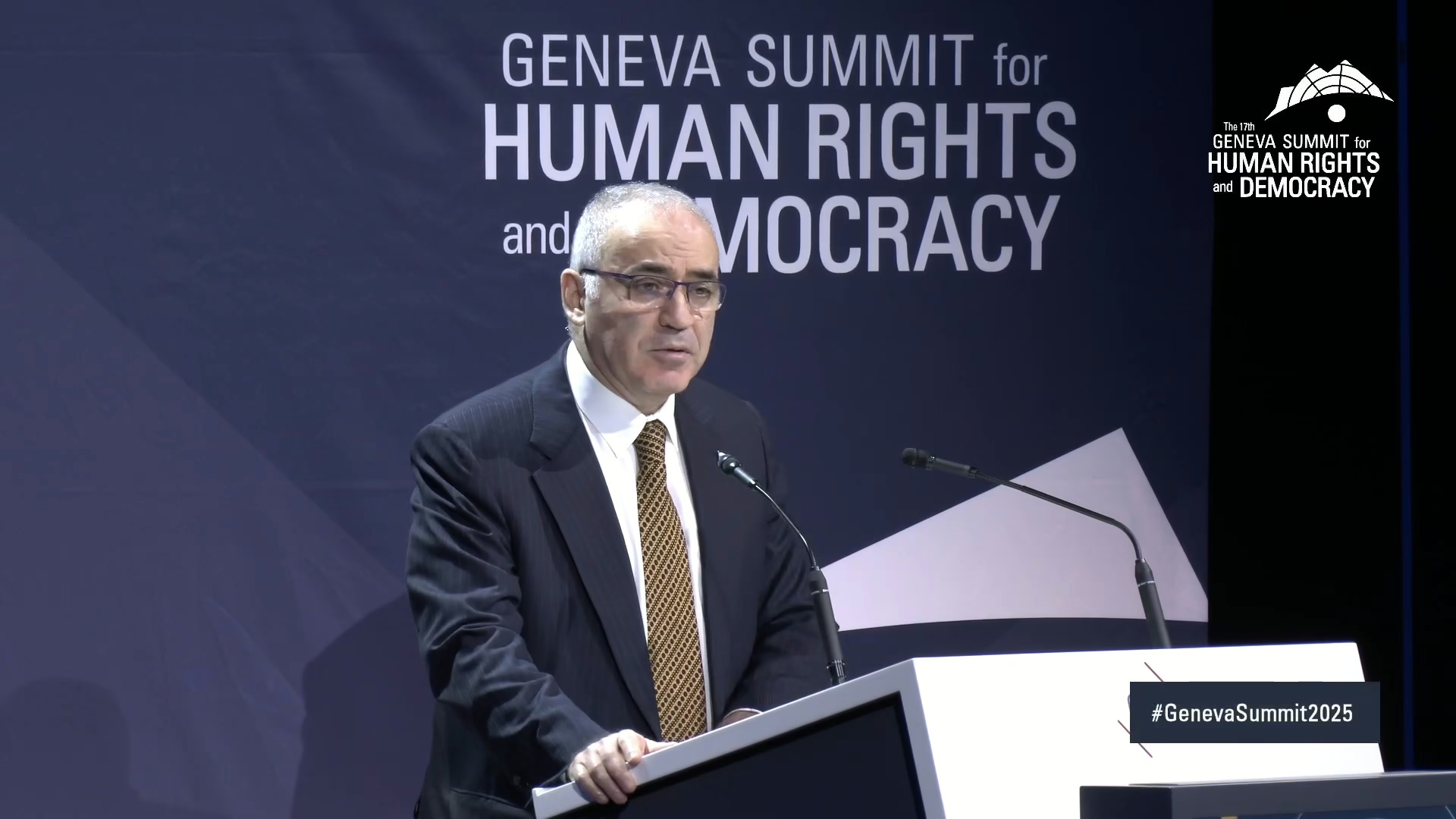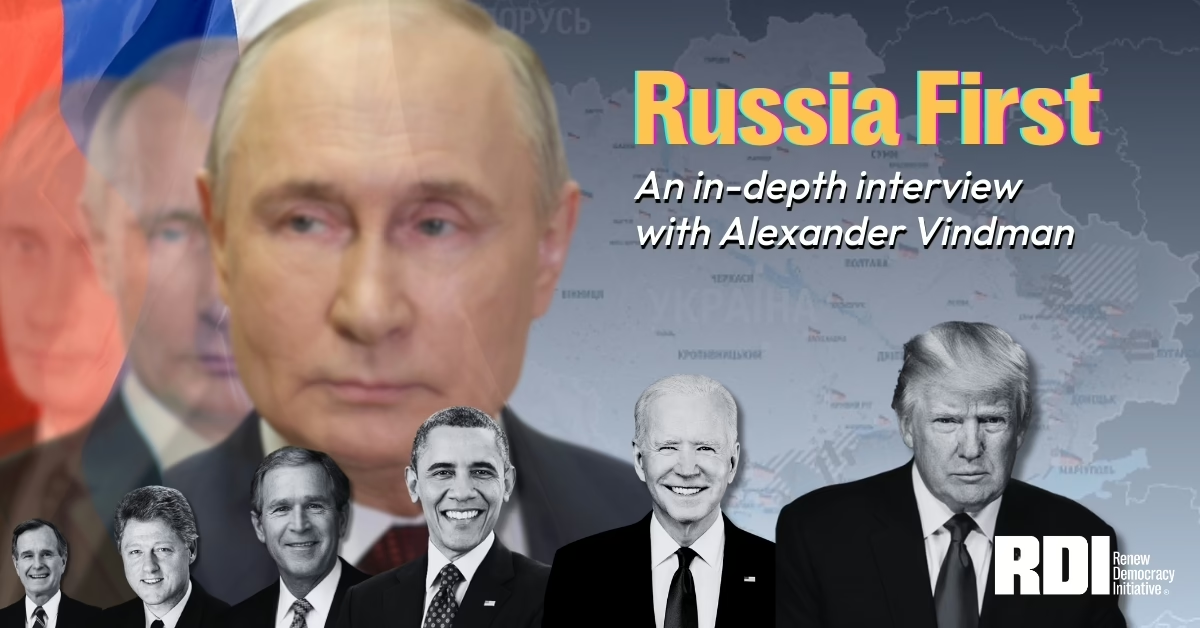An AMA with RDI’s founder and chairman, former world chess champion, and Russian dissident.
1. Why are you on Twitter/X? I don’t like to use it because of the trash it tries to make me view. One of the only reasons for me to use it is to seek content that you post. Why not use Bluesky?
— Daniel from Washington state
Well, first of all, actually I am on Bluesky. And if you’ll do me the honor, I encourage you to follow me and RDI on that platform!
Second, just because I am still on Twitter does not mean that I’ve changed my mind about Elon Musk anymore than my (or anyone else’s) continued residence in the United States is an endorsement of Donald Trump. I don’t believe in giving up the fight, so I intend to stay.
You are, of course, right to point out problems with Twitter. I’ll go a bit further: From my own experience, and from speaking to others who oppose Musk and Trump’s agenda, I can tell you that Twitter is suppressing our reach. I am steadily losing followers and my engagement has inexplicably dropped. This is happening at a suspicious rate, suggesting it’s not just people tired of hearing from me. It seems as if engagement is rigged to punish opinions that have fallen out of favor with the current management. It’s not necessarily visible to the naked eye, but it is happening, slowly but surely.
I actually posed a question to Musk a couple of years back, asking whether any Russian money went towards the purchase of Twitter. Naturally, he didn’t answer. Still, there’s plenty of publicly available evidence that Musk himself interferes with the site’s functions to settle personal scores. Just last week, French prosecutors opened up an investigation into Twitter over alleged algorithmic bias.
But Twitter remains the closest thing we have to a digital public square. That is not to give Musk credit. By the time he acquired Twitter, the site was—to borrow a turn of phrase—almost “too big to fail.” You can see that in the disparity between Twitter and its competitors. It’s not that the product Musk is selling is so much better. It isn’t. But migrating a lot of people to another platform is difficult. Speaking from personal experience, I still have one million followers on Twitter—split unevenly between my political content, chess, and my takes on AI. On BlueSky—which, in theory, is a more friendly turf—I have just under 70,000.
Those who are sticking it out on Twitter span the political spectrum—including many who share my misgivings about Musk and Trump. Again, this is in spite of Musk’s attempted social engineering. I hope that Bluesky succeeds, but the reality is that it remains smaller and caters to a more ideologically limited demographic, which tilts left of center. The ideal would be a truly neutral arena that facilitates productive discourse between both sides, but we haven’t achieved that yet. For moral reasons—and as a backup in case things accelerate—I am doing my best to engage on Bluesky. But as a practical matter, I will remain on Twitter for as long as I can.
2. My US-born high school senior son has EU citizenship courtesy of his mother. With Trump, and even more so Musk, who might be too rich for American democracy to survive, I think my son should focus on learning German over the next eight months and try to attend college in Germany, which will help him make a new life in the EU instead of the US. Do you think that leaving the US for the EU is advisable?
— Hoyt from Massachusetts
I cannot give you precise advice here because that depends upon so many other factors. I can only offer the lesson of my own family’s experience by way of personal example. Your mileage may vary.
My eighteen-year old daughter is bilingual—she was born and raised in New York City. Of course, she doesn’t like what’s happening here in the United States. But she will stay here.
Of course, circumstances once required me to leave Russia behind out of concern for my life. So I understand your fear that things could get bad. You and I will surely both be monitoring developments in the US very closely.
In a way, this question mirrors—on a much more serious level—the previous one, about why I am still on Twitter under the Elon Musk regime. I’ll repeat here what I articulated above: I don’t believe in abandoning the fight. And right now, we are in a fight for the soul of America.
3. Is Putin’s demise something to be feared by the West as Biden seemed to think? (I don’t know about you, but we’re having a big party when he croaks)
— Mike from Texas
I completely reject this line of thinking. It is fear-based as well as a complete misreading of modern geopolitics and Russian history.
Recall that the US actually tried to forestall the collapse of the USSR. Now, here we are again. The question is not Putin’s demise—that is inevitable. The question is the timing. How many have to get hurt before the Free World gets its act together and endorses regime change in Russia.
President Biden feared Putin’s demise because of the strategic complications. Because of the possibility it would cede ground to China.
All theoretical. Let’s talk about what is real:
Had the US and its allies taken a firmer line on Putin when he first took power, we might have forestalled a dictatorship in Russia, another bloody war in Chechnya, and the invasion of Georgia.
Had the US and its allies taken a firmer line after 2008, thousands of Ukrainians in the Donbas and Syrians might have been spared.
And if the US and its allies had stood firm in 2021 and 2022, hundreds of thousands more Ukrainians would still be alive. Millions would still be in their homes.
The graphic evidence of what is actually happening is far worse than abstract fears of something that might happen.
I get it. Removing a cancer is scary—and Putin is a cancer. But letting the disease metastasize is far worse.
I’m under no illusions that removing Putin will be a simple fix. The rot runs much deeper in Russia. But history shows us that one-man dictatorships are often followed by committees—look at China after Mao, or the Soviet Union after Stalin. Dealing with such a group, which will mostly be looking out for its own interests, will be easier on a tactical level, than dealing with the tsar. In the long run, of course, if we want to free Russia from its authoritarian malaise, there is an even bigger imperative: Ukrainian victory and Russian defeat. Ukrainians did not ask for this mandate, but it is nevertheless the case that only this can drive home to Russians that the empire is dead and it is time to move on.
4. What similarities and differences do you see between MAGA and populist movements in other countries?
— Chuck from Virginia
MAGA is a populist movement with distinctly American traits—the United States is a superpower, and so in many ways, it drives political-cultural phenomena around the world rather than being driven by them.
All the same, the rise of MAGA follows a similar pattern as the rise of authoritarian and populist movements in Europe, such as those led by Viktor Orban in Hungary, Marine Le Pen in France, and Germany’s AfD: A successful society creates wealth; greater wealth opens up a social gap; and someone tries to address the new injustices: either they pursue a moderate course and power alternates between center-left and center-right, or they swing very far to one extreme and exploit societal divisions.
MAGA is capitalizing on the perceived excesses of the left in America—the 2024 election was clearly a rejection of “wokeness” (however you define it). But just as the left became self-indulgent, Trump’s camp is also prone to excess. And that is exactly what we have seen in the first weeks of his new term—the beginnings of overreach. So the pendulum may swing back in the other direction, from a majority or near-majority rejecting “wokeness,” to a critical mass opposing MAGA.
And here is what both gives me some cause for cautious optimism about the situation in America and a bit of wariness about the trajectory of Europe. The US has an imperfect but solid democratic tradition. I believe Americans will right the ship of state, although people will suffer and the world will be carried into dangerous new waters in the interim. The same can’t be said for Europe, which doesn’t have that democratic history (outside of Great Britain). The institutions aren’t as solid. Half of Europe was under communist dictatorship just three decades ago. A few generations before that, most of the continent was under the grip of fascists and decaying monarchies. Sadly, it’s not hard to imagine a reversal. The last few decades of democracy might just be a blip on the historical radar.
5. Garry, you are a big inspiration for me. One thing that strikes me is that you often call for a ban of Russian athletes at international events. However, at the same time you mention how you yourself protested against the USSR during your career. Wouldn’t you agree that Russian athletes that call the Russian government out should be welcome at any event?
— Bram from the Netherlands
This question goes beyond the issue of Russian athletes: The Free World is missing a strategy for all Russians who are brave enough to call out Putin and their country’s illegal, genocidal war in Ukraine.
Speaking from personal experience, you cannot get rid of your Russian citizenship—you’re locked in if you are under criminal investigation. So Russian nationality is an albatross around the neck of even Putin’s harshest and most endangered opponents. Some even face sanctions.
Of course, these bureaucratic difficulties pale in comparison to the horror Ukrainians are confronting in a war that continues to be popular in Russia. So, as a Russian, I believe the West ought to approach my compatriots with conditions: We Russians seeking sanctuary in democratic societies must be willing to sign on to the following three planks:
1) The war in Ukraine is criminal.
2) The Putin regime is illegitimate.
3) Crimea belongs to Ukraine.
The fact that the West never developed such a policy is evidence that winning the war was not a priority.
An affirmation of these three points could constitute a passport for a “Free Russia.” It’s a critical element of a winning strategy for Ukraine and the Free World to succeed in the war. The West cultivates a partner via a sort of virtual “Russian Taiwan,” driving brain drain among a critical class of educated professionals in Russia. Putin can mobilize legions of foot soldiers and fill factories, but he can hardly afford to lose a few hundred thousand more software engineers. All of this undermines Putin’s dishonest claims that support for Kyiv is part of a war against Russia as opposed to a war against his fascist dictatorship. The Russian opposition gains access to the relative safety of the Free World and need not be lumped in with those who support the war in Ukraine, as is currently the case for everyone from athletes and beyond.
Ask any question to Garry Kasparov. Don’t miss this unique opportunity to engage with one of the world’s most sought-after thought leaders. Keep an eye out, your responses may be published in a future edition of The Democracy Brief!





